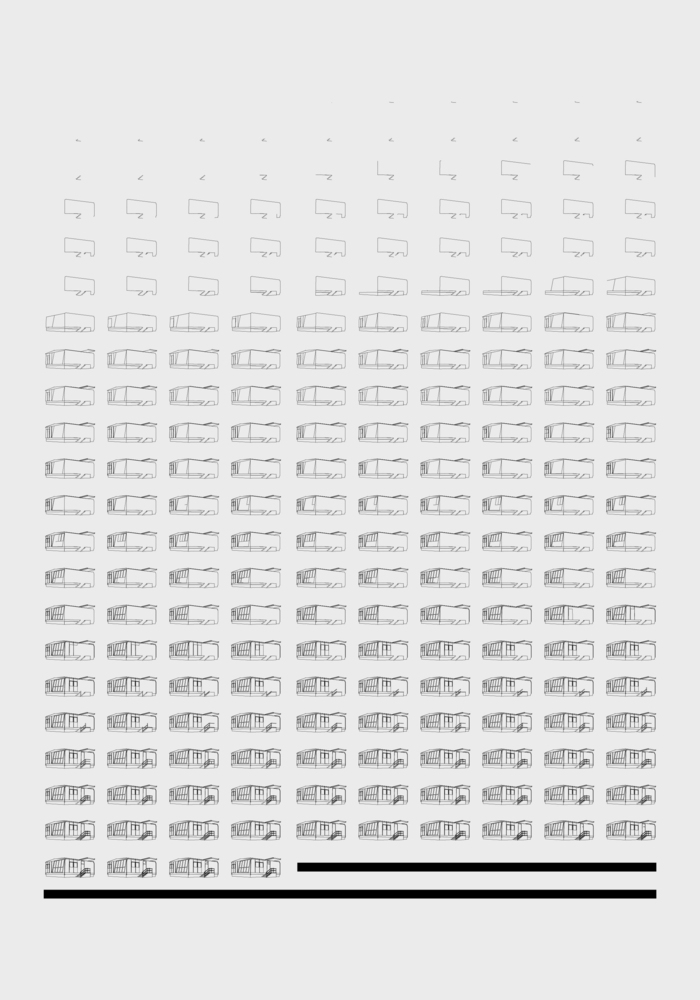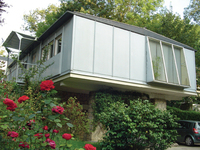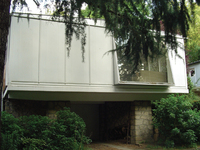Maison Standard, Meudon
deValence-
-

- deValence for the Architectural Association, 2007
-
Jean Prouvé (1901–1984) was not strictly an architect or a designer or an engineer, but all of those things at once. Having trained as a metalworker, he set up his own studio in 1924. Until 1952 (the year when his factor was bought up), he worked there producing chairs, furniture, aluminium structures, modular houses and portholes. After this he continued to practise his trade as a designer. Each of Prouvé’s constructions has a functional role which determines its form. His style resides not in some kind of beauty but in the intelligence and the generosity of his work. The example of the ‘standard house’ developed in response to the postwar housing shortage, was based on modules one metre wide. It was designed to be assembled in forty-eight hours.
Prouvé’s work is characterised by the modesty of its materials (aluminium, wood) and intention (social vision), and by an economy of means and a reduction of the stages of construction. Jean Prouvé appeals to us through his attachment to the context in which his work is set, through his engagement with his projects, his rebuttal of gratuitous architectural gestures and effects of style. We admire the way in which he dealt with problems.
We approach a designer’s work through the attention he pays to the constraints and problems of each project. For us, the solution often lies in the brief itself, in the question posed by each commission. Our first step is therefore to bring this question to the fore and respond to it. Nor do we shy away from doing research for our commissions; it is no different from the other work we do for our clients.
-
-

- Jean Prouvé in Meudon. Photos: Francis Jonckheere, Ony One
-
-
-

- Jean Prouvé in Meudon. Photos: Francis Jonckheere, Ony One
-